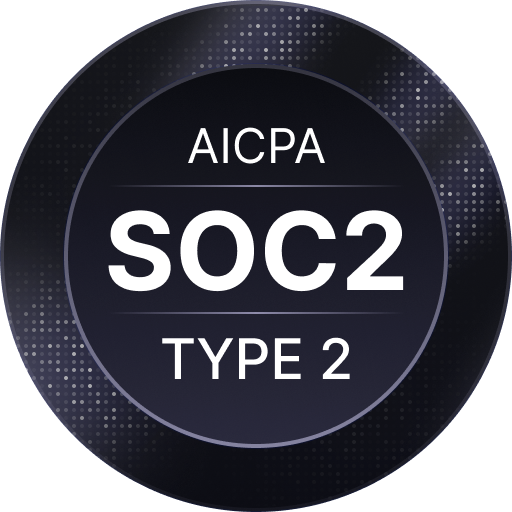Blog Comparisons11 Best Free Knowledge Base Software in 2026
11 Best Free Knowledge Base Software in 2026
Good news—you don’t need to spend a dime to build a great self-serve support hub. We’ve rounded up the best free knowledge base software options for 2025, covering their pros, cons, and top features. Whether you need a lightweight wiki or a full-fledged help center, you’ll find the right pick here.
Mile Zivkovic
Content @ Featurebase

11 Best Free Knowledge Base Software for 2026
According to Salesforce's original research, 61% of customers prefer to resolve simple issues independently rather than talk to a customer support team.
Knowledge bases are the perfect way to make this happen: they provide all the key info in one place, helping customers troubleshoot on their own. As a bonus, you free up more time for your customer support team to work on something else.
While most of these tools cost some money, did you know that you can get a knowledge base tool for free? Today, we'll show you some of the best knowledge base software options you can use completely free, with their pros and cons.
In short—The best free knowledge base tools for 2026:
- ✨ Featurebase – The best all-around modern knowledge base for SaaS with AI-powered, robust features
- XWiki – Best free knowledge base software for organizations needing a highly customizable, open-source knowledge management system
- BookStack – Best for teams looking for an intuitive, book-like organization structure for their documentation
- Nuclino – Best for small teams and startups seeking a lightweight, real-time collaboration tool
- Confluence – Best for businesses requiring a centralized hub for team collaboration and integration with other tools
- MediaWiki – Best knowledge management software for large-scale documentation projects needing extensive customization and multilingual support
- Documize – Best for teams managing both structured policies and unstructured content in one platform
- phpMyFAQ – Best for organizations creating multilingual, user-rated FAQ systems for customer support
- eXo Platform – Best for businesses seeking an all-in-one digital workplace with collaboration, knowledge management, and intranet features
- MkDocs – Best free knowledge base software for developers looking for a fast and simple way to create static documentation sites using Markdown
- Guru – Best for teams needing real-time access to verified knowledge directly within their workflow
But before we get into that, let's cover some basics. 👇
What is a knowledge base?

A knowledge base is a centralized repository of information that provides users with answers, guides, and resources about a product or service. It helps customers and teams find solutions quickly, reducing the need for direct support and improving overall efficiency. 📚
However, in the SaaS industry, a knowledge base is an online library created by the product's creators, with relevant articles and information about the product. A knowledge base solution can be used for internal knowledge management to help your team quickly solve problems.
There are also external knowledge bases, which customers can use to troubleshoot on their own without getting in touch with customer support. In recent years, good SaaS knowledge base software has artificial intelligence features, helping customers access a company's knowledge quickly and intuitively.
What features should knowledge management software have?
If you want to choose the right knowledge base software for your business, you need to look for features that meet your business's and your customers' unique needs. These are some of the most essential features a knowledge base tool should have.
- Ease of use: the free knowledge base software interface should be easy to use for the administrators (on your end) and the readers going through the knowledge base. Ideally, it should have a drag-and-drop, WYSIWYG type of editor. Free knowledge base platforms may require additional technical expertise, but there is community support for that.
- Content management systems: the knowledge base solution should let you group articles by categories, tags, or hierarchies. Look for version management/control to easily compare two or more versions of the same doc. It should also include advanced search bar functionality with filters and auto-suggestions.
- Collaboration tools: role-based access control for teams is crucial. Users should be able to edit and comment on existing content in real-time. Optionally, look for workflow management and approvals so your content goes through the right hands before publishing.
- Integration capabilities: with CRMs, help desk software, and project management tools.
- Analytics and reporting: so you can view a dashboard and find out which articles get the most views, what your most popular search terms and where you have content gaps. You should be able to view user engagement metrics such as likes, votes, and the time spent on pages.
- Mobile accessibility: the knowledge base software design should be mobile-friendly so that the output is optimized for every device.
- Scalability and storage: the knowledge base solution should accommodate growth in users and store a larger quantity of multimedia files.
- Security features: role-based permissions and user authentication should prevent unauthorized access to knowledge base articles. If possible, look for SaaS knowledge base software with SSL encryption and backup and data recovery options.
- Self-service features: users should be able to access your company's knowledge easily, so they don't spend hours trying to find relevant articles. Optionally, the knowledge management software should suggest relevant articles based on previous viewing history.
- Offline access: if need be, the user should be able to access the knowledge base without an internet connection by exporting it in formats such as PDF or HTML.
Types of knowledge base software
Based on everyday use cases, these are some of the most important types of knowledge base software:
- Internal knowledge base software: Centralizes and manages internal knowledge within an organization and its internal teams. You can put your entire company's knowledge management in one place for easy search and access.
- External knowledge base software: Provides customer-facing content for self-service support.
- Open-source knowledge base software: Offers free, customizable solutions for technical users.
- SaaS-based knowledge base software: Cloud-hosted solutions for easy deployment and scalability.
- Integrated knowledge base software: Embedded within larger platforms like CRM or help desk tools.
- AI-powered knowledge base software: Enhances knowledge management with AI-driven features.
- Documentation-focused knowledge base software: Specialized for technical documentation and developer resources.
- Offline knowledge base software: Enables knowledge access in remote or offline environments.
- Community-powered knowledge bases: Allows user-generated content and collaboration.
- Hybrid knowledge base software: Combines internal and external knowledge management features, so you can create a private knowledge base with full control over who sees it.
Free knowledge base software doesn't need a group because any of these categories can be free.
The best free knowledge base software choices in 2026
Below, we list some of the top choices for your next internal or external knowledge base, along with their top features and how you can use them for free.
1. Featurebase ✨

Featurebase (👋 that's us) is a modern free knowledge base tool that helps you create beautiful product documentation quickly and brings articles to your users with in-app widgets. It comes with affordable pricing and a free plan. You can set it up in minutes, and we can help you migrate over from your old knowledge base with zero data loss.
Top features:
- Public & internal knowledge base: Restrict access to certain articles only to select user groups or teammates
- Embeddable in-app widget: Serve help articles directly within your application through an embeddable widget, reaching users where they need assistance most
- AI search summaries: Enable users to find the information they need quickly with instant full-text and AI-powered search capabilities for the ultimate customer self-service experience
- Notion-style text editor: Utilize a powerful editor with extensive formatting options and custom components for creating rich content
- Custom branding: Personalize your knowledge base with your colors and custom domain to align with your brand identity
- Multi-language support: Assist a global audience by providing support in over 40 languages
- SEO optimization: Benefit from built-in SEO features to help your knowledge base rank higher in search engine results
- Plus, feedback community, product roadmaps, changelogs, and satisfaction surveys—all in one place
How it's free:
Featurebase comes with a generous Free plan, and you can try the paid ones with a 10-day free trial. Pricing starts at just $29 per user per month. If you also use a popular customer support platform, you can replace that with Featurebase and our AI agent as well, in that same price point.
✨ Create a beautiful Help Center with Featurebase for free →

2. XWiki

XWiki is an advanced, open-source knowledge base software and collaboration platform designed for teams and organizations looking to organize and share information efficiently. It is highly customizable, making it suitable for small and large enterprises with specific requirements. Its open-source nature allows users to adjust XWiki when they create their own knowledge base.
Top features:
- Powerful WYSIWYG editor: Create and format content easily with a user-friendly editor that supports rich text and media integration.
- Version control: Keep track of changes to pages with detailed version histories and the ability to roll back to previous versions.
- Customizable templates: Design and use templates to standardize documentation, ensuring consistency across your knowledge base.
- Advanced permissions management: Control user access with granular permission settings, ideal for maintaining security and sensitive data integrity.
- Integration capabilities: Connect XWiki with tools like Jira, Confluence, and G Suite for a seamless workflow.
How it's free:
XWiki is entirely open-source, allowing anyone to download, use, and modify the software without cost. While paid hosting and support services are available, the core functionality is free for those who can self-host.
3. Bookstack

BookStack is a free, open-source documentation platform designed to help individuals and teams quickly create, organize, and maintain their knowledge base. Its simple and intuitive user interface makes it an excellent choice for non-technical teams, while its flexibility allows it to scale for larger teams.
Key features:
- User-friendly interface: Navigate and manage content easily with a clean, straightforward design that minimizes the learning curve for easy organizational knowledge sharing.
- Book-based organization: Structure your knowledge base like a library with books, chapters, and pages for logical content organization, allowing users to find relevant articles quickly.
- Page revision history: Track changes to content with detailed revision logs and restore previous versions if needed.
- Custom roles and permissions: Define user roles and permissions to ensure secure and controlled access to your software documentation, which comes in handy if you want to share external resources.
- Markdown editor support: Write and format content using Markdown, giving you flexibility in creating pages.
How it's free:
BookStack is open-source and free to use. Users can download and self-host the software at no cost, with the option to purchase third-party hosting or support if needed.
4. Nuclino

Nuclino is a lightweight and collaborative knowledge management tool designed for teams to organize and share information effortlessly. Its simplicity and fast technical setup make it ideal for startups, small teams, and organizations looking for a straightforward solution to manage their knowledge base.
Top features:
- Real-time collaboration: Work with your team on documents in real-time, seeing changes instantly.
- Visual content organization: Arrange and link information visually using boards, lists, and graph views to structure content intuitively.
- Markdown support: Write and format content quickly using Markdown, with live previews for easy editing.
- Robust search engine: Find relevant information quickly with a fast, intelligent search function supporting tags and filtering.
- Cross-platform availability: Access your knowledge base from any device with dedicated web, desktop, and mobile apps.
How it's free:
Nuclino offers a free version with core features such as unlimited workspaces and up to 50 items. This makes it suitable for small teams and projects with limited content needs. Users can upgrade to paid plans for additional storage and advanced features.
5. Confluence

Confluence, developed by Atlassian, is a widely used knowledge management software and collaboration tool designed for teams of all sizes. It provides a centralized space for creating, organizing, and sharing knowledge, making it a go-to choice for businesses seeking seamless team collaboration and documentation.
Top features:
- Dynamic content creation: Create and easily format pages using a rich text editor that supports multimedia, tables, and macros.
- Team collaboration: Enable real-time collaboration with inline comments, page sharing, and notifications to keep everyone on the same page.
- Templates library: Use pre-designed templates for everyday use cases like meeting notes, project plans, and product requirements.
- Integration with Atlassian tools: Connect with Jira, Trello, and other Atlassian products to streamline workflows.
- Robust permissions management: Control access to spaces and pages with customizable permission settings.
How it's free:
Confluence offers a free plan for small teams with up to 10 users, with access to core features, including unlimited spaces and pages. Larger teams or those requiring advanced features can upgrade to paid plans for additional functionality and support.
6. MediaWiki

MediaWiki is a powerful, open-source wiki platform best known as the knowledge base software behind Wikipedia. It is best for teams and organizations seeking a highly customizable solution to build and maintain a knowledge base, particularly for large-scale documentation projects.
Key features:
- Extensive customization options: Tailor the look, feel, and functionality of your wiki using extensions, templates, and skins.
- Multi-language support: Create content in multiple languages, making it suitable for international teams or global documentation needs.
- Revision history: Track all changes with detailed version histories and the ability to revert to previous versions.
- Advanced search capabilities: Leverage powerful search tools with indexing and filters to locate specific information quickly.
- Community-driven support: Access a vast library of extensions and plugins developed and maintained by the MediaWiki community.
How it's free:
MediaWiki is completely open-source software provider, allowing anyone to download, use, and modify it for free. It requires self-hosting, but the software itself comes with no cost. Optional hosting and dedicated support services are available through third-party providers.
7. Documize

Documize is an open-source knowledge base software designed to streamline documentation and team collaboration. It is a great option for organizations looking for a solution that balances simplicity with the ability to handle unstructured and structured data efficiently.
Top features:
- Hybrid content management: Manage structured content (like policies and procedures) and unstructured content (like notes and guides) in one platform.
- Powerful search functionality: Quickly locate information with advanced search and filtering options.
- Access control: Define granular permissions for users and groups to ensure content security and proper access management.
- Content templates: Use customizable templates to standardize documentation, saving time and ensuring consistency.
- Integration options: Connect Documize with third party tools like Slack, Google Drive, and Microsoft Office for a more cohesive workflow.
How it's free:
Documize offers a free, open-source version that includes its core features and is ideal for teams that can self-host the platform. Paid plans are available for those who need additional functionality or hosting services.
8. PhpMyFAQ

phpMyFAQ is an open-source knowledge base and FAQ content management system designed for organizations that need a structured and user-friendly solution for handling frequently asked questions. It is well-suited for customer support teams, IT departments, and anyone managing a large volume of recurring customer queries.
Top features:
- Multi-language support: Create and manage FAQs in multiple languages to cater to a global audience.
- User feedback and rating system: Allow users to rate and provide feedback on articles, helping improve the quality of your content.
- Powerful search functionality: Help users find answers quickly with an intuitive search engine that includes keyword highlighting.
- Revision history: Track changes to content with detailed version histories and rollback options for accuracy.
- Category management: Organize FAQs into categories and subcategories for better navigation and structure.
How it's free:
phpMyFAQ is completely open-source and free to use. Users can download and self-host the software without any cost. Additional professional support and hosting options are available through third-party providers for those who prefer managed services.
9. Exo

eXo Platform is an open-source digital workplace solution that combines knowledge management, collaboration, and communication tools. It is ideal for businesses and teams looking to create a centralized hub for information sharing, task management, and collaboration.
Top features:
- Knowledge base integration: Create, organize, and manage a comprehensive knowledge base for your team or organization.
- Collaboration tools: Foster teamwork with features like shared workspaces, task management, and real-time collaborative editing.
- Social intranet: Build an engaging workspace with activity streams, community forums, and user profiles to encourage team interaction.
- Document management: Store, share, and manage documents with version control and access permissions.
- Extensive customizability: Customize the platform with add-ons, extensions, and branding options to match your organization's needs.
How it's free:
eXo Platform offers a free, open-source version of its software that includes core features and is suitable for self-hosted deployments. Users can opt for paid plans for additional functionality, hosting, and enterprise-grade support.
10. MKDocs

MkDocs is a simple, open-source static site generator designed explicitly for creating project documentation. It is an excellent choice for developers and technical teams looking for a lightweight, fast, and customizable way to build and maintain documentation sites.
Top features:
- Markdown-based documentation: Write content in Markdown, making it easy to create and format documentation without a steep learning curve.
- Instant site generation: Turn your Markdown files into a fully functional static website with a single command.
- Customizable themes: Choose from various built-in themes or create your own to personalize the appearance of your documentation.
- Live preview: Use the built-in development server to preview changes in real time as you edit your content.
- Extensible with plugins: Enhance functionality with a wide array of community-developed plugins, such as search engines and table of contents generators.
How it's free:
MkDocs is entirely free and open-source, so you can host it on your own server. You can download and self-host it without any cost like a true open source tool, regardless of how many users you have. Since it generates static websites, there are no server requirements beyond a basic web server, making it cost-effective to maintain.
11. Guru

Guru is a knowledge management platform designed to help teams capture, organize, and share critical information in real time. It's ideal for customer support, sales, and remote teams who need quick access to accurate and up-to-date knowledge.
Top features:
- Real-time knowledge sync: Ensure information is always current by syncing content directly from tools like Slack, Google Workspace, and Microsoft Teams.
- In-browser access: Access knowledge directly through a browser extension, making it easy to find helpful resources without leaving your workflow.
- Knowledge verification: Maintain accuracy with built-in verification workflows that allow subject matter experts to review and update content periodically.
- Card-based organization: Store knowledge in "cards," making it simple to organize and retrieve specific pieces of information.
- AI-powered search: Quickly find the answers you need with an intelligent search engine that learns and improves over time.
How it's free:
While Guru's paid plans are quite expensive, Guru offers a free software version for small teams, allowing up to 3 core users to access its essential features. Larger teams or those requiring advanced capabilities like analytics and integrations with existing tools can upgrade to paid plans.
Conclusion
Getting free knowledge base software for your product is one of the best ways to make lives easier for your team and your customers. With some tinkering, you can create a knowledge sharing platform that helps you resolve customer problems, save time for your customer support team and increase overall customer satisfaction.
Featurebase is one of the best modern knowledge base tools that lets you create beautiful product documentation in minutes—for free. In addition to docs, Featurebase offers user feedback collection, survey, and changelog features to help you build the best product on the market.
It comes with affordable pricing and a free plan. We can help you seamlessly migrate from any existing knowledge base tools. 👇
✨ Create a beautiful Help Center with Featurebase for free →





